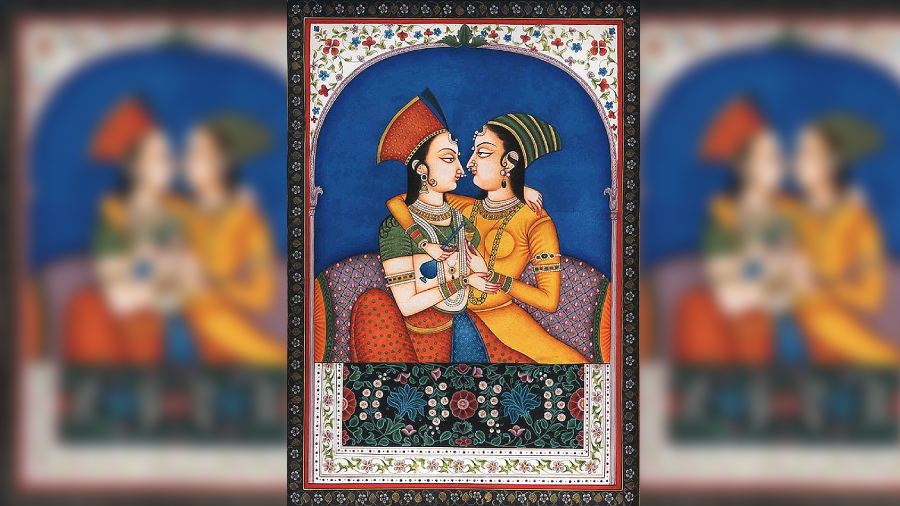Book: The Law of Desire: Rulings of Sex and Sexuality in India
Author: Madhavi Menon
Publisher: Speaking Tiger
Price: Rs 499
Madhavi Menon invokes several cases to present how the law of the land understands and articulates desires, deciding their naturality and acceptability in society. From the Hadiya case to the Madras Devadasis (Prevention of Dedication) Act of 1947 and the Suppression of Immoral Traffic Act of 1956 to Section 377, among others, Menon highlights the law’s desire to identify certain kinds of behaviour as ‘immoral’, ‘obscene’ and ‘unnatural’. Or, more aptly, law’s “inability to locate desire”.
She notes that our desires are “hopelessly entangled with public expectations” and that “[t]he private becomes legible only when it is public”. Hadiya’s case is an example. Here, “religion and sexuality are simultaneously understood to be private and public”: Hadiya marrying Shafin Jahan “without the ‘permission’ of her parents” irked the court. Menon rightly points out that “her ‘private’ choices also shows us how public such decisions really are.”
Menon’s prose is articulate when it mentions (cis-het) marriage being the focal point of legalizing private desire as it is its “public face”. She also points out that the law “assumes gender as the baseline for welfare schemes, reservations, etc” and that “from Blackstone to Macaulay, our colonial masters” didn’t name the desires whose existence they didn’t want to acknowledge.
However, on several occasions, nuance seems to elude the professor who’s heavily invested in theorizing desire. I’ve three observations to submit against this claim.
First, Menon calls tawaifs “the north Indian secular equivalent of devadasis” as if the former were made to marry a deity.
Second is Menon’s displeasure with Section 377 continuing to criminalize human-animal sex. She writes, “Whether or not we believe that bestiality should be decriminalized, the question posed by 377 is a different, and more important one: Do we take exception to any stigmatization of sex as unnatural, or do we simply not want our sex acts to be considered unnatural?”
Menon wants to you to focus on what should be labelled unnatural — stigmatization of choices and desires or sex acts in general. However, the gap in the argument is glaring: not explaining who is ‘our’ here, for it takes at least two, an animal and a human, in this case, to express, and eventually fruition, this desire. The question remains: can animals verbalize their desires as efficiently as humans can when, in fact, ascertaining consent remains difficult among the species on the top of the cognitive ladder?
Third, which is tied to the previous observation, is this: there’s nothing gross in recklessly desiring what you want but to have missed ‘consent’ in the discourse around sexuality is a sin — pun intended. Menon forgot that a part of Section 377 was read down to decriminalize homosexuality “between consenting adults”. It’s legitimate to express discontent on ‘naturalness’ being the parameter to legalize desires. But propose an alternative too. The book could have aspired to present some such questions that readers can engage with.
Further, Menon notes “being legally recognized also means being legally policed”. Absolutely right. Let’s stretch this discussion further: what if someone’s desire violates my rights? One mustn’t be booked for thinking or desiring anything that’s conventionally called a ‘criminal offence’ but the law is in place, or at least tries, to adjudicate when such a conflict arises. Isn’t it? But for that, anything of that sort must be recognized.
Historically, the law has undeniably been weaponized — a reality no one can deny. The question, however, remains: is Menon suggesting the dismantling of the legal system to do away with the policing of desire? Perhaps she has a framework in mind; but it doesn’t make it to the book.










